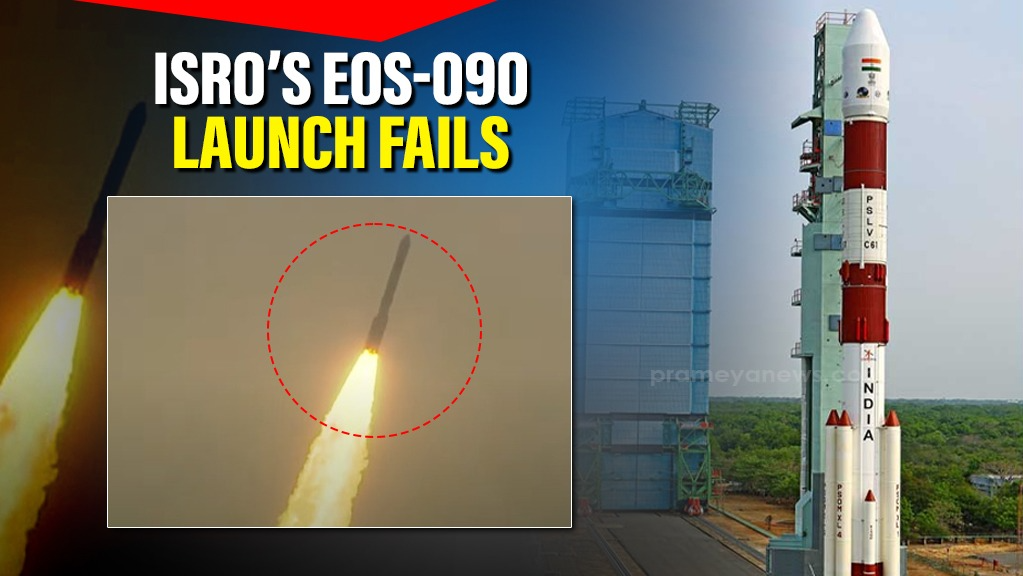

Sriharikota (Andhra Pradesh), May 18: In a major setback, the 101st mission of the Indian Space Research Organization (ISRO) failed after its PSLV-C61 rocket carrying the EOS-09 satellite faced a technical malfunction in the launch vehicle.
Owing to the malfunction, the mission failed as the satellite could not be deployed successfully.
The indigenous PSLV-C61, an Indian-made Polar Satellite Launch Vehicle, took off from the Satish Dhawan Space Centre in Sriharikota. Its goal was to place the EOS-09 satellite into a Sun Synchronous Polar Orbit (SSPO).
ISRO Chairman Dr. V. Narayanan said that the first and second stages of the rocket worked as expected, but a problem happened during the third stage. Because of this issue, the satellite could not be placed into orbit as planned.
The ISRO Chief said, "Today, we tried our 101st launch from Sriharikota with the PSLV-C61 carrying the EOS-09 mission. The PSLV is a four-stage rocket, and everything worked fine until the second stage. The third stage engine started as expected, but during its operation, we saw a problem, and the mission couldn't be completed successfully."
He also said, "We will return after analyzing the issue."
ISRO shared an update on X, saying, "Today 101st launch was attempted, PSLV-C61 performance was normal till 2nd stage. Due to an observation in 3rd stage, the mission could not be accomplished."
The third stage of the PSLV is a solid rocket motor that gives a strong push during the flight through the upper atmosphere. It provides a maximum thrust of 240 kilonewtons and is important for putting the satellite into its correct orbit.
The EOS-09 satellite was made to provide steady and reliable data for different uses, including border security, national defense, farming, forestry, flood monitoring, and disaster management.
For the mission, the PSLV rocket carried a 1,710 kg satellite into a special orbit called a sun-synchronous orbit, which ensures the satellite gets consistent sunlight for observing the Earth.
The mission was also aimed at promoting sustainability and responsible space operations. EOS-09 was similar to the EOS-04 satellite, which was launched in 2022. It was designed to provide remote sensing data for people using it in various fields and to increase how often the Earth can be observed.